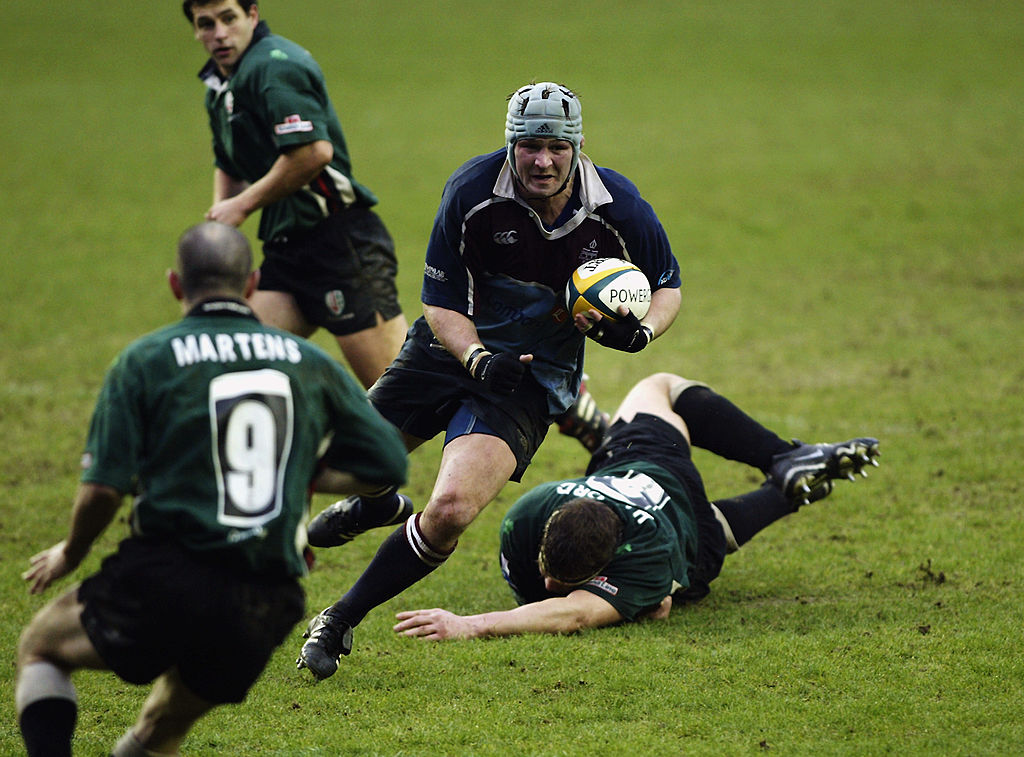Six more ex-pros join legal fight against World Rugby, RFU and WRU

READING - JANUARY 26: Neil Spence of Rotherham charging forward during the Powergen Cup Quarter Final match between London Irish and Rotherham held on January 26, 2003 at the Madejski Stadium in Reading, England. London Irish won the match 30-11. (Photo by Warren Little/Getty Images)
Six more players have joined the legal action against rugby authorities for their failure to protect their long-term health from the risks associated with concussion.
Four of the six, which include ex-England and Wales internationals, have asked to remain anonymous as the damages case against World Rugby, the RFU and WRU gathers pace.
Former Wales U20 centre Adam Hughes, aged just 30, has been diagnosed with brain injuries and post-concussion symptoms, as has former England U21 and Rotherham Titans back row Neil Spence, 44. While the other players have been told they have early-onset dementia and are likely to have CTE (chronic traumatic encephalopathy).
The lawsuit seeking damages against the governing bodies has shone light on rugby’s trend with degenerative brain diseases, one week on from England World Cup-winner Steve Thompson joining Michael Lipman and Alix Popham in sharing their dementia diagnoses.
A letter has been served to World Rugby, RFU and WRU offices on Thursday on behalf of the legal firm, Rylands Law, representing the former players.
In it, Rylands Law alleges that the risk of concussions and sub-concussive injuries were “known and foreseeable”, and lists what it sees as 24 failures on the part of World Rugby, the RFU and the WRU.
The law firm claims it now has the support of more than 100 former players whose ages range from their 20s to their 50s.
Richard Boardman, of Rylands, said: “Last week’s announcement about the condition of some of rugby’s sporting greats has sent shockwaves around the sport. Yet, for many, it was inevitable.
“No one should underestimate the courage shown by each player in taking this action, while at the same time facing up to their own life-changing diagnosis. It continues to be a battle for them.”